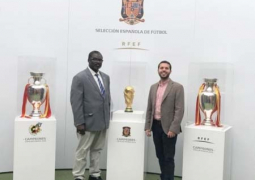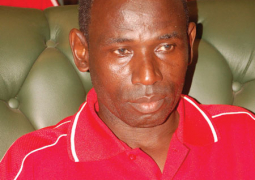The European Union has said it remains committed to dialogue with the Gambia government, according to EU sources close to this paper.
The sources further said, barely 10 days after the Gambia government issued a declaration that it would “no longer entertain any dialogue on the issue” of homosexuality with the European Union or any other foreign power for that matter, that:
“We believe dialogue is likely to be a more effective approach to promote improvements on human rights and governance issues. We are therefore ready to pursue this dialogue, should Gambia wish to.”
The political dialogue provided for in Article 8 of the Cotonou Agreement, to which both the EU and The Gambia are committed, is an integral part of the partnership of both parties, our sources added.
“It is there precisely to enable us to discuss issues on which we may have different points of view. The EU remains committed to this dialogue, and hopes it is possible to resume it as soon as possible.”
It is vital to note that, under the 10th EDF - European Development Fund - the funds made available to The Gambia amounted, in total, to €73.6 million.
EU support to the transport plan under the 9th and 10th EDF resulted in 277km of trunk road being built, repaired and refurbished, “which has significantly improved transport of people and goods across the country, with travelling time being reduced significantly.”
Our sources also said the EU has provided support for the successful introduction of Value Added Tax (VAT) and Mid-Term Expenditure Frameworks (MTEF) in close collaboration with the Ministry of Finance and Economic Affairs, the IMF and the World Bank.
“A 7.6 million EUR programme financed from the Millennium Development Goal Initiative (MDG 1C) contributes to improve food security situation through support to farmers and to the school feeding programme,” the EU sources further indicated, adding that The Gambia also received support from some thematic envelope to support the fight against drug trafficking and tackle climate change, for instance.
The Gambia, the sources stated, also received funding from ECHO in response to the 2011 crop failure and related food crisis through WFP; in 2012 and 2013 for interventions focusing on treatment of severe cases of acute malnutrition through UNICEF.
“As a member of ECOWAS, The Gambia also stands to benefit from development cooperation funding directed towards this regional organization,” the sources said.
“In the framework of thematic programmes, The Gambia benefits from the NGO co-financing budget line, the Environment budget line, the Food Facility, the Election Expert Missions and actions related to human rights defenders under the EIDHR instruments.”
The sources also said what the future holds for The Gambia is immense, as the envelope for the country for 2010-2014 (11th EDF) is being prepared, in consultation with The Gambia.
“When the National Indicative Programme for The Gambia will have been presented and approved by EU Member States, it is planned to start with an initial amount of EUR 25 million for the first period of 2014-2015, which corresponds to the timeframe of The Gambia’s own national development plan,” our EU sources stated.



